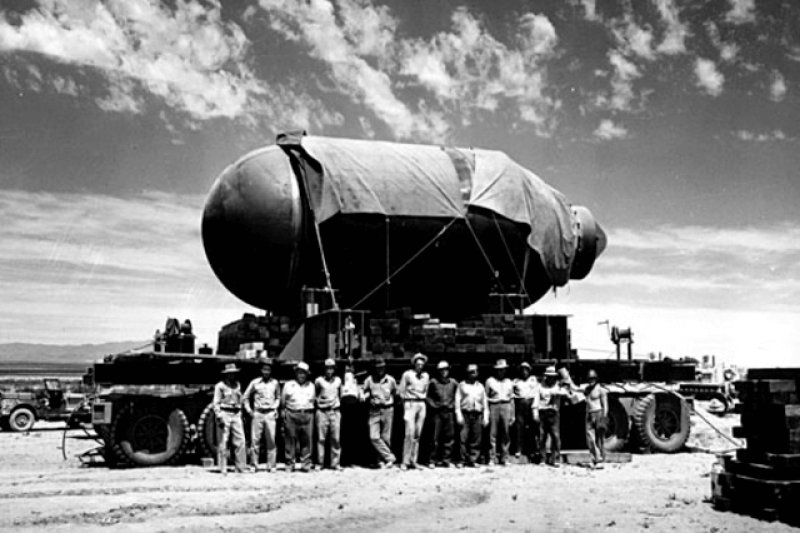The only way to truly end the novel coronavirus pandemic is to develop an effective vaccine. And while there are close to 100 vaccines in development, many experts have said testing and commercializing any one of them could take a minimum of a year—and probably much longer. Such a waiting time could prove deadly to millions of people and further strain a global economy already struggling to stay afloat. But there may be a way around this arduous vaccine develop process, and a massive undertaking during World War II offers us a roadmap.
The Manhattan Project streamlined production of weapons to aid the Allied war effort during World War II, culminating in the development of the first atomic bomb. The plan involved extensive collaboration between dozens of government agencies and independent scientists, many of them refugees from fascist countries, to ensure the rapid technological progress that was necessary to build the bomb. At its height, the project employed 130,00 people and ultimately cost more than $2 billion.
A similarly massive undertaking, a vaccine Manhattan Project, is needed to bring the coronavirus pandemic to an end, says Dr. Hannu Rajaniemi, co-founder of the biotech firm HelixNano. In a recent article on Medium, Rajaniemi argued that a pathway to widespread immunization in six months, and at a fraction of the cost of sustained economic shutdown, is not just possible but the best option we have:
We need a 6-month Vaccine Manhattan Project: a large concerted effort to: 1) upgrade our vaccine technology stack and 2) upgrade the methods we use to assess vaccine safety.
We can change our trajectory with:
- $10 billion
- Project leadership with appropriate experience (DARPA or similar).
- A simple collaboration framework with the right incentives that enables any company or academic group to contribute.
- An FDA/EMA task force to evaluate and develop novel clinical trial designs.
Given the enormous benefits of even a partial success, the cost of doing this is trivial. A $10Bn vaccine program amounts to the economic cost of eight hours of US-wide partial quarantine.
On this episode of Talking Biotech, Rajaniemi and host Dr. Kevin Folta examine the current state of the pandemic, proposed methods of mitigation, and what the path to a vaccine in six months might look like.
Dr. Hannu Rajaniemi is a physicist and co-founder of HelixNano. Follow him on Twitter @Hannu
Kevin M. Folta is a professor in the Horticultural Sciences Department at the University of Florida. Follow Professor Folta on Twitter @kevinfolta































